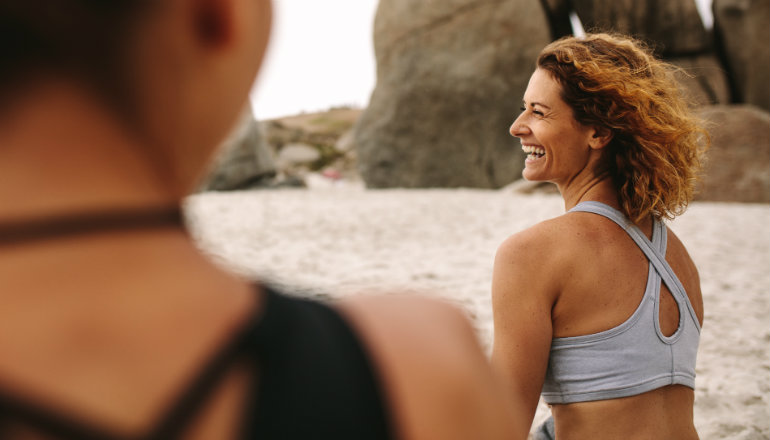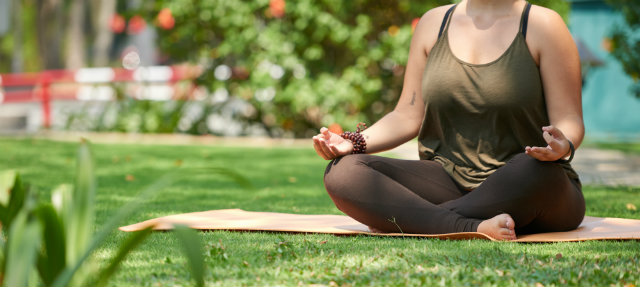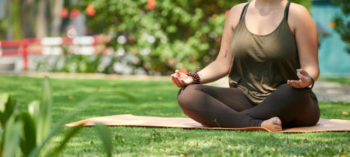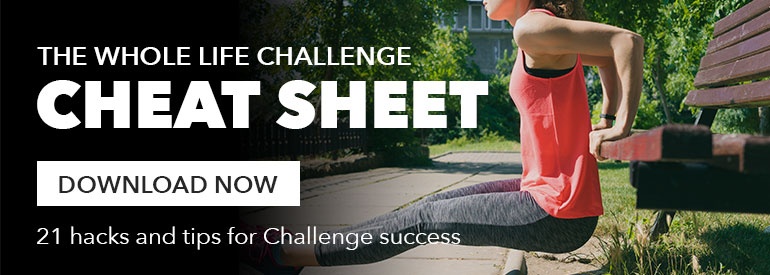 Reading Time: 7 minutes
Reading Time: 7 minutesOur Well-Being Practices are meant to give you different ways to build your inner sense of well-being. Or, said another way, they are tools designed to help you create a Well-Being Mindset.
Each week of each Challenge, we announce an “official” Well-Being Practice, but this practice is only a suggestion. We’d like you to try it, but there are a variety of valid reasons you may not wish to engage in a particular practice. Maybe you are traveling and it’s logistically impossible. Maybe you already regularly engage in this practice. Maybe you’ve honestly given your best at this practice in the past, and it just isn’t the tool for you.
If you feel the official Well-Being Practice is not right for you, it is better to choose another practice rather than to skip this habit entirely. We recommend you opt for one of our three foundational Well-Being Practices: meditation, journaling, or connection.
We consider these practices foundational because they lie at the heart of what the Whole Life Challenge is all about — not just habits for good health and well-being, but also for your awareness of yourself and your choices, your ability to reflect honestly on what’s happening in your life, and the importance of building a strong and reliable community of support.
Remember: whichever you choose, you still need to stick with your practice for the whole week (you can’t change practices daily). The point is to establish consistency with the practice and then notice the effects of that.

Foundational Well-Being Practice #1: Meditation
Simple Instructions:
- Find a quiet place where you will not be disturbed
- Sit or lie in a position that is comfortable but that will ensure you stay awake
- Close your eyes and relax your breathing
- Use your inner attention to: Watch or count your breaths (1-10 and start again); Notice any physical sensations in your body, without getting hooked into pleasure, pain, or concern; Repeat a simple phrase, mantra, or affirmation, timed with your breathing
- When you notice your mind has drifted into thinking, simply bring your attention back to what you chose, letting go of any judgment about it
Why Is This Practice Important?
Our mind is a miraculous and, at times, troublesome thing. As a tool, its ability to organize and categorize facts and otherwise get to the heart of the matter is unparalleled. Yet, there is a part of us that knows our life is not simply a matter of facts. And when we allow our mind to manage everything in our lives, it can cause trouble.
Things like peace, joy, love, connection, and gratitude don’t draw any of their power or importance from facts or figures. Our knowing them doesn’t depend on cutting things apart, but on experiencing life as a whole. Our ability to separate our “self” from our mind is an important step in moving into greater experiences of those things.
Your “self” is that thing that is able to observe that “you” are angry, annoyed, distracted, worried, or otherwise disengaged from the experience of what’s happening and engaged only in what you think about it. Meditation is a practice is getting to know both your “you” and your “self” and strengthening your ability to create space between the two.
Imagine for yourself: What could your life be like if you were able to act in from a place of peace, calm, joy, love, connection, or gratitude? What would it be like if you had that space between your “self” and your thoughts, feelings, and emotions. Meditation, over time, gives you that space between the two that allows you act from whichever you deem most appropriate, your mind or your true inner self.

Foundational Well-Being Practice #2: Journaling
Simple Instructions:
- Write in your journal each day this week
- Use one of these journal styles:
- Diary-style or stream-of-consciousness writing
- Gratitude journal: 3 things you are grateful for each day
- Progress journal: 3 things that worked today or yesterday and 3 things that didn’t
- Optional daily writing prompt provided below
Why Is This Practice Important?
Our thoughts tend to have a life of their own. They bounce in and out of our heads and operate on their own schedule, coming and going as they please. Some of them don’t seem to serve any useful purpose, but there can be important or valuable thoughts inside us to which we’re not present.
Whether our thoughts are positive or negative, when we don’t get them out in some way, they tend to hang around and block our forward progress. Unexpressed thoughts are like keeping a cork in a bottle — whatever is in there stays in there, running your show on its terms. It makes no difference whether these thoughts are true or false, practical or unrealistic.
Taking the time to get our uncensored thoughts out of our heads and onto paper can liberate our minds. If it’s important stuff, now you’ve become present to it and can make it useful. If it’s not something you wish to retain or hang onto, you can even rip the page out of your journal, burn it, and be done with it!
The simple act of releasing your thoughts by keeping a daily journal can give you the freedom to take back your own mind and create new connections and new opportunities.
Optional daily writing prompts:
- Saturday: What are the things I’m most proud of having accomplished over the past six months? Describe
- Sunday: Where are the things not currently working in my life? Be as raw and truthful about this as possible.
- Monday: What is my definition of “courage”? How does it show up for me in different aspects of my life? Where am I being and not being courageous?
- Tuesday: What are the excuses I tell myself for not having done the things I want to get done? Explain each. Is there anything really standing in my way?
- Wednesday: Do a quick Google search for “personal values,” then write on the (approximately) ten values that resonate most.
- Thursday: What is my vision for my life in three to five years? Describe in as much detail as possible: who, what, where, when, why. Home, car, family, vacation, business, work, hobbies, skills, friends, etc. Write this in present tense, as if you are already five years into the future and you’re describing life as if you’re in it. “My life is great. I live… I work… I play… I vacation…”
- Friday: How do my current habits support (or not support) the vision I have for where I want to be in life?

Foundational Well-Being Practice #3: Connection
Simple Instructions:
- Find a way each day to connect or deepen a connection with someone important to you
- Some ideas:
- Send a short text message to say hello, thanks, or “I’m thinking about you”
- Give someone a call
- Arrange to meet someone for coffee or a meal
- Shut off and distracting electronic devices when you’re eating or visiting with someone
Why Is This Practice Important?
There’s no way around it: people are very important to a healthy life. Research has demonstrated that one of the most important things in the lives of people who live the longest is social networks (and I don’t mean Facebook). Relationships provide something to lean on when we need help, when we need someone to listen, or even when we’re talking crazy. They provide connection when we feel lonely.
I heard an artificial intelligence researcher talking about a movie in which a brilliant recluse was working to create an artificial intelligence in his compound far out in the wilderness, away from everyone else. The researcher referred to it as one of those moments in movies where people who know something about the subject know what is happening is impossible.
What was so impossible? Creating something great cannot be done in an environment like that — away from people, without collaboration, cooperation, and course correction. No matter what you’re working on — artificial intelligence or your own emotional intelligence — without feedback from people who care about you, you’re taking shots in the dark.
The upshot is that we can’t “do” our best life alone — we’re too much inside our own frames to see the big picture, we can’t always see when we’re succeeding or need help, and, maybe most importantly, we won’t know how loved we are. We need people and we need quality connection to ensure we’re living our best.











